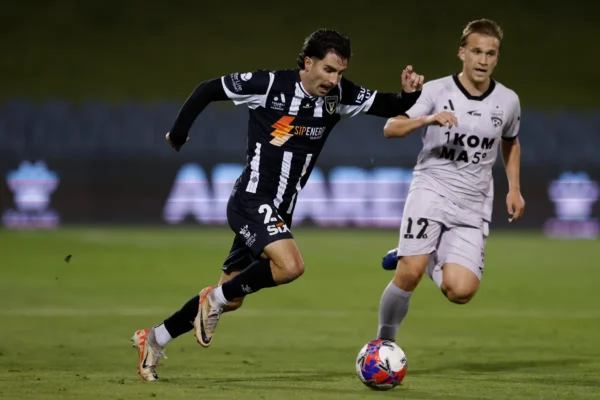
Football Queensland (FQ) have confirmed the four nominees for the 2019 Football Queensland Premier League (FQPL) Coach of the Year award.
The four men nominated for the award are Paul Arnison, Andrew Ogden, David Booth and Scott MacNicol.
The winner will be announced at the 2019 Football in Queensland Awards Night.
Paul Arnison led the Sunshine Coast Wanderers to the FQPL Premiership this season, steering them to promotion to the NPL Queensland in their second season as a club. The Wanderers had a hot start to the year winning the first five matches they played. They would go on to win 13 of their 18 regular season games. With one of the best attacks in the competition, Sunshine only lost once in their final nine games. Arnison’s side defeated Ipswich Knights in the semi-final, however would fall at the final hurdle against Rochedale in the Grand Final.
Andrew Ogden’s Ipswich Knights had mixed fortunes in the beginning of the 2019 FQPL season. Fortunately, they would find their form heading into the finals series, winning their final five matches. The Knights recorded an unlikely victory against Logan Lightning in the elimination final, producing some of their best football of the season. The run would end shortly after though, losing to Sunshine in the semis.
Capalaba FC were one of the best sides in the FQPL this season, finishing second on the table. David Booth’s side will therefore be playing in the NPL Queensland next season, securing promotion in their last game of the regular season. Capalaba defeated Logan Lightning in the must-win encounter. Booth’s success throughout the season saw him selected as Coach of the Month for May.
Scott MacNicol guided Rochedale Rovers to Grand Final glory in the 2019 FQPL, after finishing the regular season in fourth. The added pressure of the finals series saw the best come out of Rochedale, beating Mitchelton FC and Capalaba FC in consecutive finals. The Rovers would go on to beat premiers Sunshine in the Grand Final. MacNicol was named Coach of the Month in August, thanks to his side’s great finish to the season.
The 2019 Football in Queensland Awards Night takes place next Saturday, November 2.


















